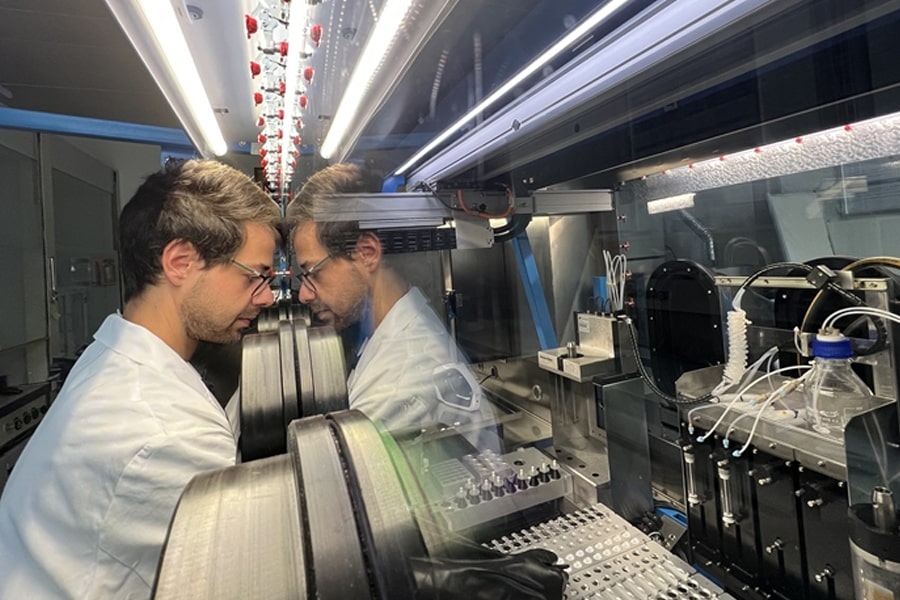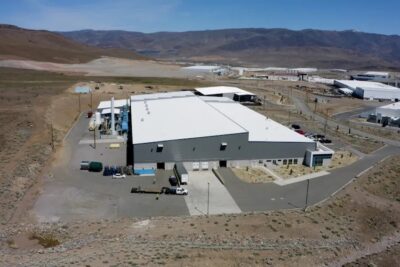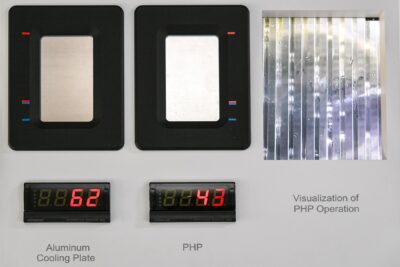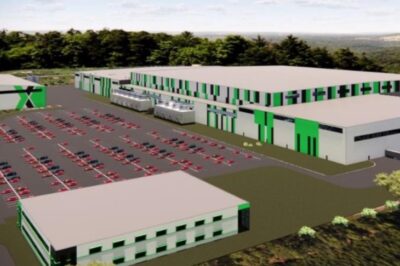Empa wants to automate battery development
Empa is working on a robot platform that can automatically – and in the future autonomously – take over material selection, assembly and analysis of battery cells in the laboratory. The Swiss research institute writes that the Aurora battery robot will automate “time-consuming and error-prone steps in the innovation process” to support internationally competitive battery research and development.
Once the battery robot Aurora is up and running, current development processes should be around ten times faster, according to Empa. However, there is still a long way to go. The battery robot is currently being further developed in Empa’s laboratories together with the company Chemspeed Technologies AG. At the moment, Empa researcher Enea Svaluto-Ferro is implementing the work steps and “training” Aurora. “While the robot weighs, doses and assembles the individual cell components with constant precision, initiates and completes charging cycles precisely and performs other repetitive steps, researchers can use the generated data to drive the innovation process forward,” says Svaluto-Ferro.
Since it can be used independently of materials, battery chemistry and generation, it could not only research lithium-ion batteries, but also test alternative sodium-ion batteries or batteries with a self-healing mechanism in the future. According to Svaluto-Ferro, approaches such as saltwater or solid-state batteries should also be brought to market “more efficiently and quickly.”
Later, Aurora will learn to work autonomously. “Using machine learning, the Aurora AI could thus create mathematical models and decide which experiments should be carried out in the next step and which materials and components are particularly promising candidates for the desired battery application,” Empa describes the plans.
The robotic platform is part of the “Open Research Data” initiative of the ETH Zurich Council. The initiative aims to promote digitisation in research and to make data freely available to the scientific community.
The project is also part of the European research initiative Battery2030+, which the EU recently funded with over 150 million euros. Battery 2030+ is a European research initiative dedicated to developing future batteries. Its focus is on environmentally friendly, high-performance and long-lasting batteries, essential for transitioning to a climate-neutral society.





0 Comments